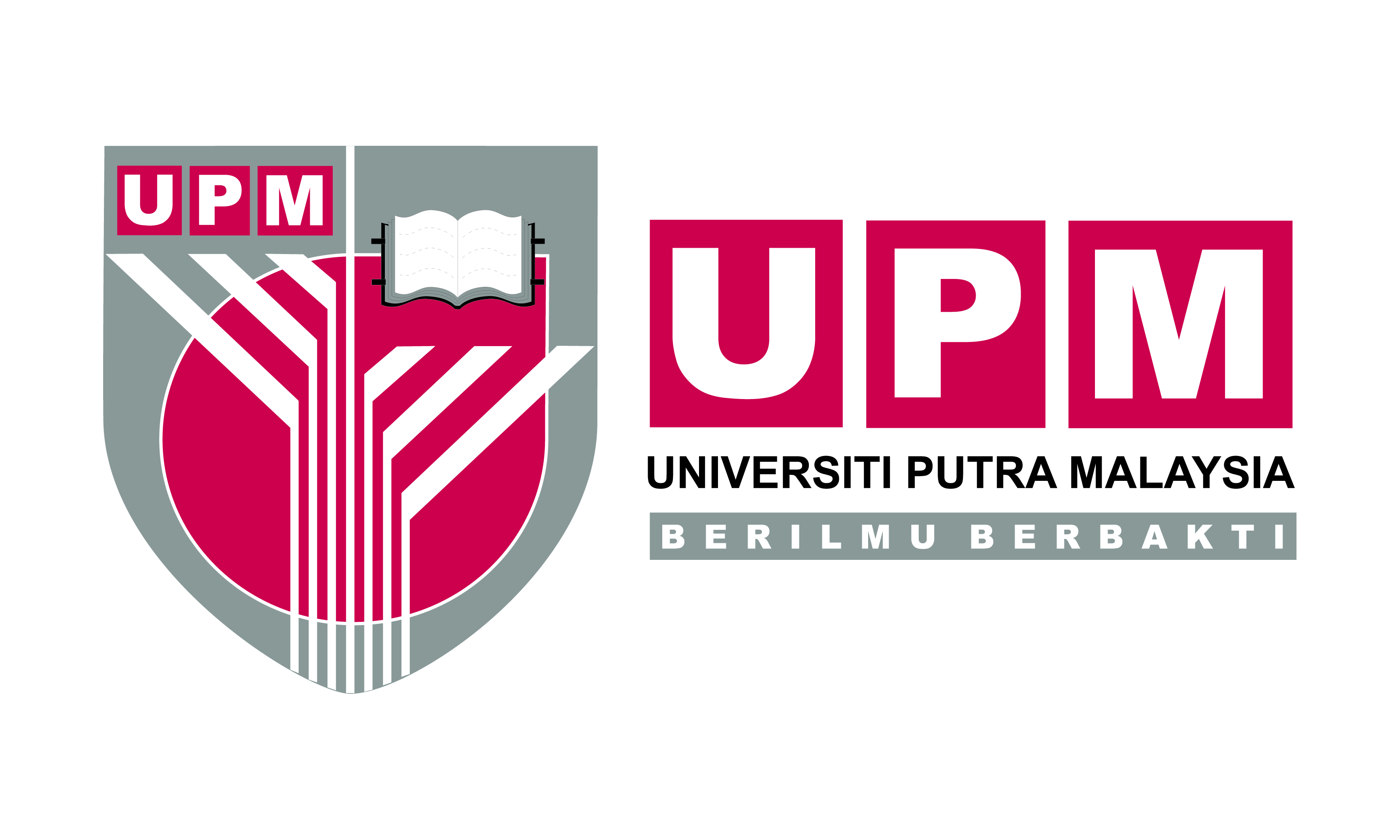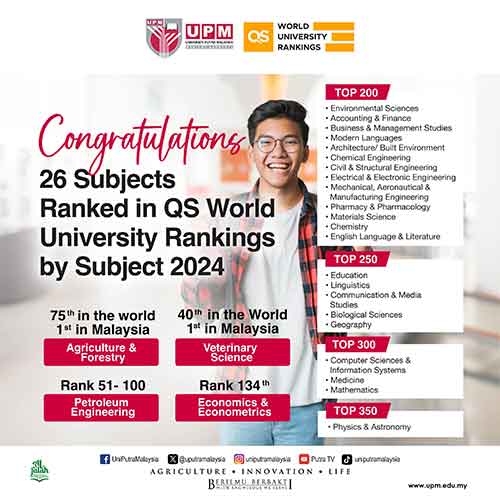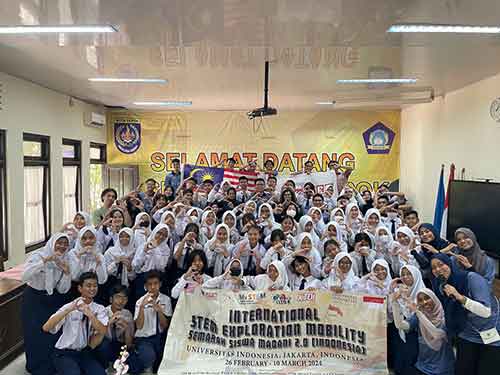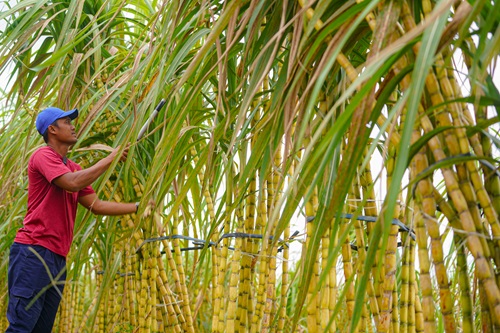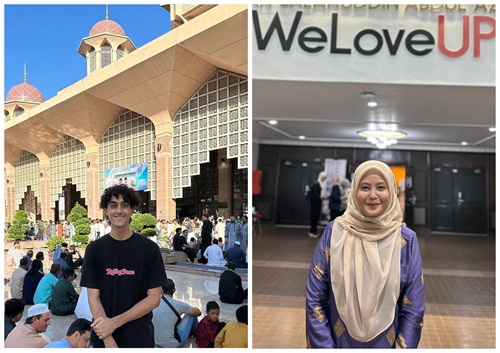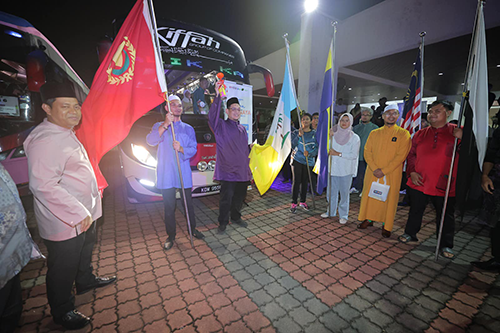
SERDANG, 12 Oct – A group of researchers from Universiti Putra Malaysia (UPM) have succeeded in producing a product based on germinated brown rice that could help reduce the risk of diabetes, Alzheimer and heart problems.
Head Researcher, Prof. Dr. Maznah, said the research under UPM’s Institute of Bioscience was initiated since 2006 using germinated brown rice that is good for health. It is called OryGold and a health drink product named OryGOLD Drink.
She said the OryGOLD germinated brownrice was produced after going through a germination process and could be used as an alternative to white rice.
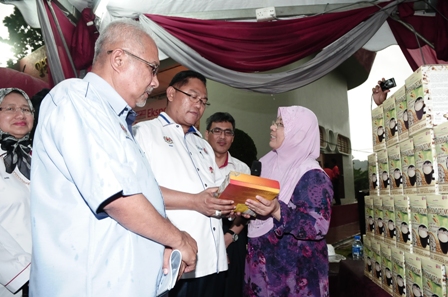
“Not only the rice helps to reduce Alzheimer problems and prevent diabetes as well as high cholesterol, it also has the potential to be the core ingredient in producing cereal based products such as instant porridge, energy foods and conrflakes,” she said at the official opening of UPM’s Agriculture Expo and Convocation Fest and the launching of OryGOLD at University Agricultural Park, UPM Serdang.
Prof. Dr Mazanah, who is from the Faculty of Medicine and Health Sciences, also said the product is better than the ordinary brown rice due to the increased bioactive compounds during germination through the activation of specific enzymes in the rice bran layer.
“At the moment, the product is yet available in the market but those who are interested can get it from UPM at RM25 a box,” she said.
On another note, the Minister for Agriculture and Agro-based Industry, Datuk Seri Noh Omar, is convinced that UPM, as the leading university in agriculture and agribio education, will establish food supply sustainability as one of the research and education’s critical agenda through various activities held at this year’s expo.
“I hope that UPM could join forces with the Ministry of Agriculture and Agro-based Industry so that the national agriculture agenda can be achieved through research and innovation. This is particularly important as food adequacy, access, benefit and safety is the key to the people’s wellbeing,” he said in his speech.
He revealed five steps to ensure the country’s food sustainability apart from efforts to transform agriculture to a modern, dynamic and competitive sector.
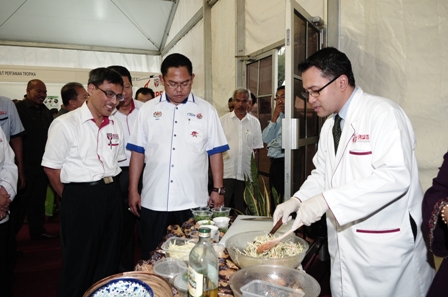
Among the steps are the exploration of high value agricultural fields, increase in production and productivity of agriculture sector and involvement of private sectors in expediting growth.
“These strategic steps are measures taken to face climate change, expand environmental-friendly farming practices, implement the practice of recycling, develop quality human resources and produce health based food products,” he said.
UPM’s Vice Chancellor, Dato’ Ir. Dr. Radin Umar Radin Sohadi said the expo, which beared the theme, ‘Food Supply Sustainability, Reassures Country’s Welfare’ was actually in relevance with food security issues.
“The theme is aptly chosen as development rapidity, population growth, uncertain climate conditions, environmental pollution and biofuel consumption will impose threat
to food supply and rise in food pricing."
“Food security is a core research field led by UPM based on niche area that comprises
strong resources owned by the university and as encoded by the Ministry of Higher
Education", he said.
The Agriculture Expo and Convocation Fest, which was held at the Bukit Expo since 1977, aims to promote university’s activities in teaching and learning, research and professional services.
The expo, which kick starts from 12th until 16th of October, also focuses on agricultural activities for sale, not only on UPM’s agricultural products but also by students and external entrepreneurs, as an effort to allow business opportunities and
draw students’ interests toward entrepreneurial culture.
This is also the opportunity for UPM to offer professional services such as the agriculture clinic and listen to people’s plight in relevance with the fields of expertise and university’s niche areas, which comprises agriculture fields and high impact agriculture.
